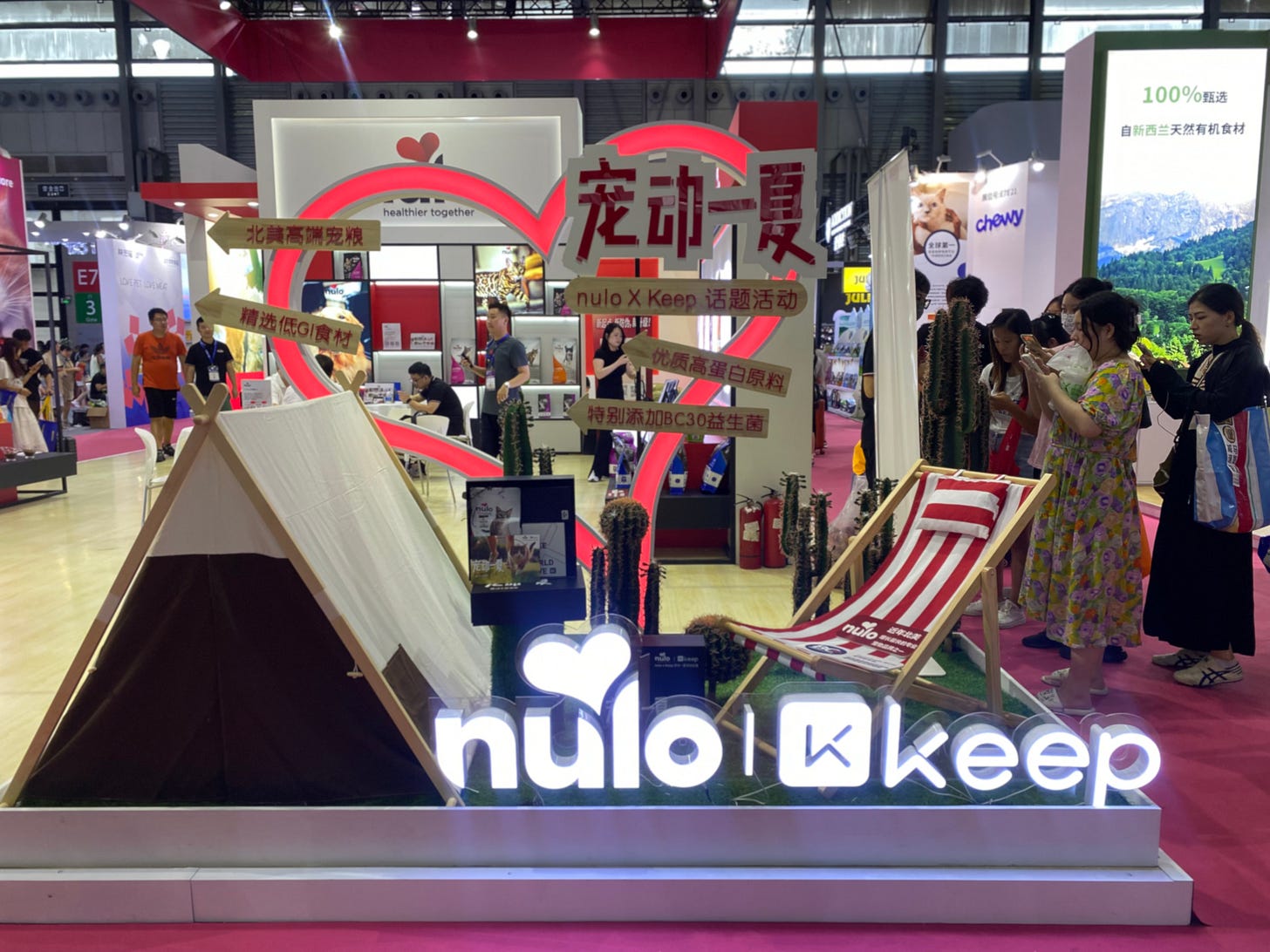Weekly #21: The market-moving audio clip of Coco Lee 🔊, Xiaohongshu bets on luxury e-commerce 🥂, China’s beauty retail sales slide 💅| Following the yuan
Amid a reorg, Xiaohongshu is placing its bets on the very luxury e-commerce startup it previously sued for trademark infringement.
Last week, I attended Pet Fair Asia, one of the world’s largest pet fairs, in Shanghai. Just when I thought I’ve seen it all with The One Pet Fair earlier this year — I was wrong. The showcase featured everything from automatic toilets for cats and coconut water pouches to luxury pet burial services. It's astounding how domestic companies consistently manage to outdo themselves as its foreign competitors whose eye-catching elements relatively fall flat.

Exhibitors were in an uproar by the listing of KKR-backed Gambol Pet Group (SHE: 301498) on Shenzhen Stock Exchange that took place in early August, which was constantly mentioned by speakers as a symbol of a rising market. This energy is paired by the active participation of notable platforms such as instant delivery giants Ele.me and Meituan, social e-commerce platform Douyin, and video streaming platform Bilibili, that are eagerly vying to secure pet shop owners and brands as clients.
I also have to say that aside from streetwear trade shows, I’ve never seen such an enthusiastic audience, who travels with luggages the size for international trips to get freebies and new products for their fur babies. I will write a deep dive about my observations later this week.

Now, let’s turn to a rare scandal in China’s entertainment industry that has nothing to do with the country’s crackdown on celebrities.
1. The market-moving audio clip of Coco Lee 🔊
The renowned Chinese singing reality show, Sing! China 中国好声音 (formerly known as The Voice of China), recently garnered attention after a 9-minute audio clip featuring the late Hong Kong-American singer Coco Lee went viral.
In the clip, Lee voiced her concerns about an unfair judging system that allowed contestants with fewer points to advance, and she also discussed the mistreatment she experienced on the show. Her mentee, Wang Zeping, confirmed in a Weibo post that the show’s producers had severed communication channels between them, leading to Lee's onstage fall.
Star CM Holdings, a public entertainment company that owns the show’s IP rights, saw its stock cut by more than half to HK$ 57.90 as of Wednesday as a result of the controversy. Sing! China is a primary source of revenue for the company.


